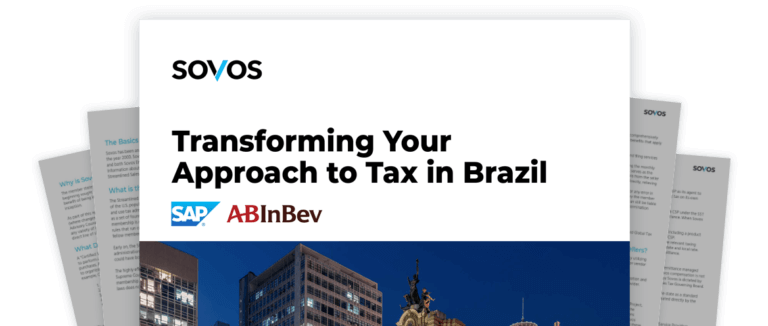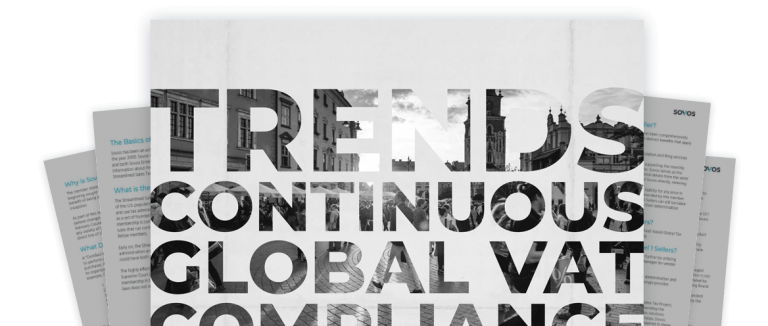Content Library
Don’t just take our word for it. There’s a reason Sovos products are used by over half the Fortune 500 and the world’s smartest companies.

As governments move more aggressively to close the tax gap and create alignment between their tax administrations and businesses through digitization, data has become a central theme for organizations and overseers alike.

Governments are now moving aggressively to close the gap between their tax administrations and businesses by taking advantage of digital tools. The result is a set of diverse and accelerating mandates, forcing businesses to adjust their systems and processes and provide data. The key to this is data standardization – no more tax at the backend of the process – you must solve tax at a point in time. By moving tax controls much closer to the actual business operation, tax administrations can also respond to anomalies in near-real-time.

Sovos’ end-to-end, technology-enabled VAT Managed Services can ease your compliance workload and mitigate risk where-ever you operate today, while ensuring you’re ready to handle the VAT requirements in the markets you intend to dominate tomorrow.

Many tax authorities are increasing their focus on the insurance industry in an effort to close tax revenue gaps, with many introducing Insurance Premium Tax (IPT) and other indirect taxes for insurance. Globally, IPT is fragmented across over 200+ countries and achieving compliance can be a complex process requiring specialist knowledge.

Brazil has long been known for its diverse and rapidly changing regulatory environments. New tax laws are continuously being introduced and current laws are often amended without notice. For businesses trying to navigate this landscape it can be challenging, frustrating and even costly. Perhaps what is needed is a new approach to tax. This Ebook guides you through the process of transforming your approach to tax in Brazil.

Brazil has one of the most diverse and rapidly changing regulatory environments in the world. New tax laws are continuously being introduced and current laws are often amended without notice. This state-by-state guide to Brazil has been created to ensure that you never miss an update again.

As governments and regulators around the world are embarking on their digital transformation, organizations need to ensure they keep their indirect tax transformation one step ahead. In this series of articles from leading journalists, learn how digital tax is evolving globally and what the changes mean for your business.









